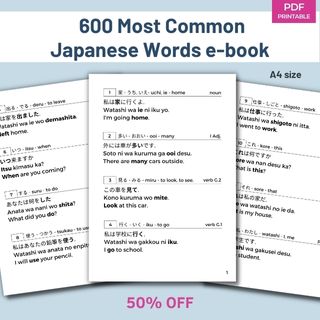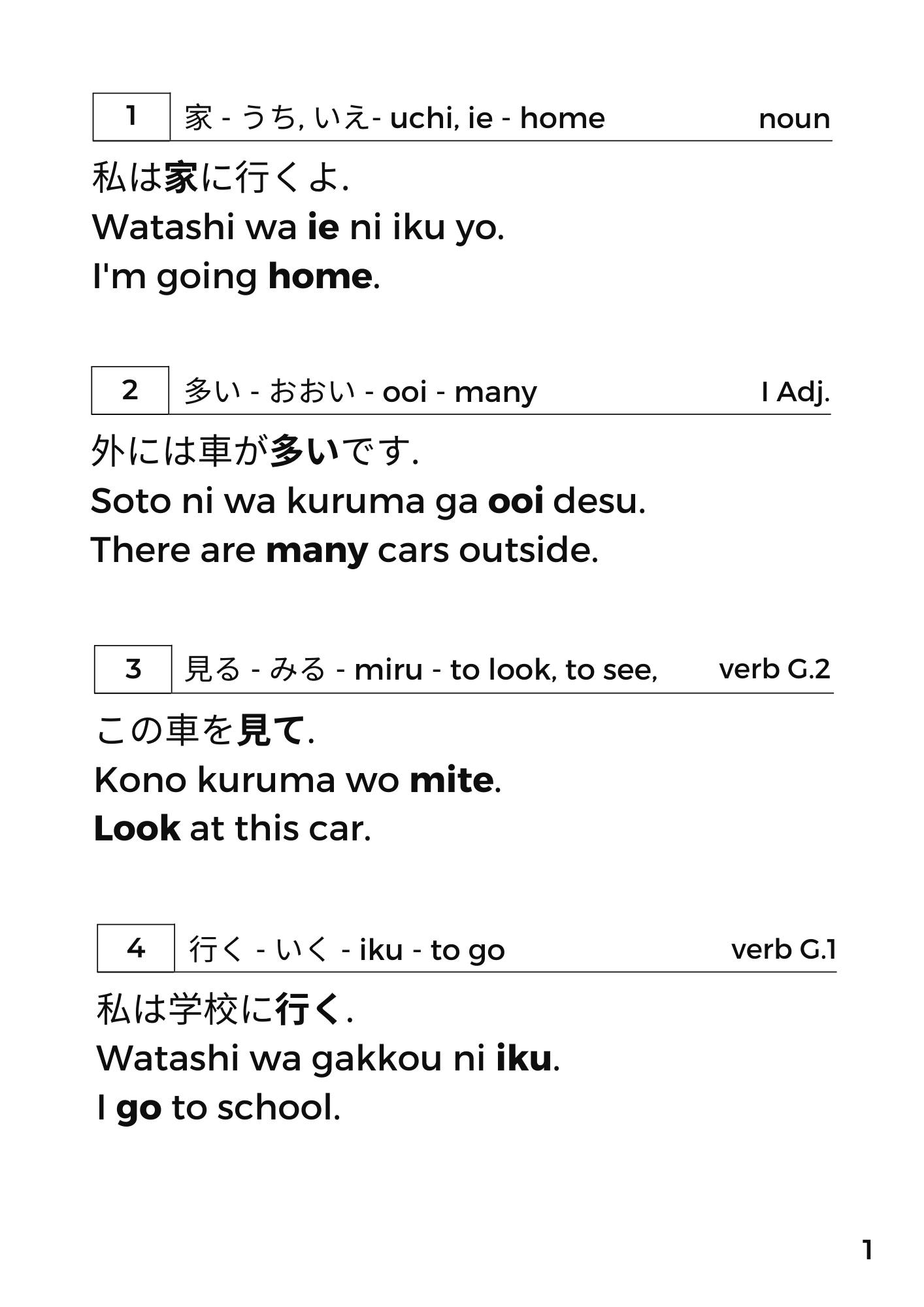
Are you interested in learning Japanese and wondering “is Japanese hard to learn?” While Japanese is often considered to be the most difficult language for native English speakers, this is not necessarily true. Difficulty can vary depending on motivation and other factors. Nonetheless, there are certain aspects of Japanese which make it a challenge to learn.
These include its three alphabets (hiragana, katakana, and kanji), complex grammar rules and pronunciations, and the large cultural context which can be difficult to understand without proper exposure. Learning Japanese is certainly not easy but with determination, commitment and study of resources such as online lessons or classes from native speakers, it can be done easily.
Table of Contents
Why is Japanese Hard to Learn for Some People?
Although some may think that Japanese is difficult to learn, it’s not necessarily as hard as it seems. It all comes down to the individual learner and a few challenging components such as writing in kanji and practicing speaking the language. With some determination and practice, however, anyone can master the basics of Japanese!
The following are some reasons why many consider Japanese one of the hardest languages to learn and some reasons why some people asks “is Japanese hard to learn?”
Check out my eBook about The Most Used 600 Japanese Words

1- Japanese Writing Systems
The Japanese language utilizes three distinct writing systems: Kanji, Hiragana and Katakana. Kanji characters are derived from Chinese characters, each representing an individual word or concept. Hiragana is a phonetic syllabary composed of 46 characters, each representing a single sound. Katakana is another phonetic syllabary, similar to Hiragana in form and usage; however Katakana is used to denote foreign words that have been assimilated into the Japanese language.
Learning the basics of these writing systems can be quite tricky as it may require dedication and memorization before learners can read sentences aloud in Japanese. But it is not that hard!
Take a look at our useful blog post about learning Hiragana
Our Hiragana practice sheet for beginners

2- Grammar Structure
If you’re interested in learning Japanese, you need to first understand the differences between the language and English. In Japanese, the sentence structure is reversed from what you’re used to. For example, the sentence “You are waiting for your friend to eat” would be translated like:
“You (particle 1) friend (particle 2) eat (particle 3) waiting” in Japanese.
This kind of reversal can be difficult to get used to, and so it takes time and practice before one can feel comfortable with it.
3- Kanji
For anyone who wants to learn Japanese, a key part of the language is mastering Kanji. These are Chinese characters that have been adapted into the Japanese writing system, and it is estimated that you need to be able to read around 2,000 of them to become fluent in Japanese. However, there’s an added challenge here; each Kanji can have more than one reading depending on how it’s used in different sentences, whereas most characters in Chinese only have one single reading for them.

4- Particles
Japanese relies heavily on particles to construct sentences. These are similar to prepositions in English, except they are used much more frequently. An example of this type of sentence structure is “I will read a book in the library” which has the structure: I library book read. Interestingly, Korean has a grammar system that is quite similar to Japanese which is why it’s easier for Koreans to learn compared to other languages.
5- Honorifics
Learning Japanese can be a big challenge, especially when it comes to mastering the heavily used honorifics that demonstrate respect and imply power. Not only is this an unfamiliar concept for English speakers grammatically, but the rules of honorifics are also intricate – they depend on who you’re speaking to, as well as where the conversation is taking place.
6- Cultural Nuances
Japan is a land of fascinating contrasts, where ancient traditions coexist with modern technologies. This country’s culture is incredibly rich, deep-rooted, and complex, with many unique customs and practices that reflect its history, geography, and people’s values. If you are planning to visit Japan or work with Japanese colleagues, it’s essential to understand the nuances of Japanese culture to avoid misunderstandings and build better relationships.
Japanese culture is steeped in tradition and respect for others, which reflects in the language. Understanding these nuances is crucial to effective communication, as failing to do so can lead to misunderstandings or even offense. Some of the most important cultural nuances to be aware of include: keigo (honorific language), non-verbal communication, group harmony.

Easy Sides of Learning Japanese
Until now we listed the hard side of Japanese. But Japanese also has many easy sides that make it a worthwhile and enjoyable experience. Here are some of them:
7- Japanese Has No Genders
The Japanese language does not have genders like in other languages and therefore you don’t need to change the grammar of your sentences depending on the nouns you use. For those coming from Romance languages or German, which both have gendered words, this can be a significant difference, as it removes the need to remember a, for example, “der, die, das” pattern when speaking Japanese.
8- Japanese Has Many Foreign words
Japanese includes many foreign words spoken in the language and written using katakana script. The majority of these words come from English, giving learners a basic knowledge before even starting to study! Some examples of katakana words include アイスクリーム (ice cream), ナイフ (knife), プログラム (program), and バーガー (burger).
Additionally, Japanese words are often composed of two or more characters, which can be broken down into smaller units, making them easier to learn and remember.
9- Japanese is Easy to Pronounce
The Japanese pronunciation system is quite simple compared to many other languages, with only around 100 phonetic sounds. Unlike some languages, such as Mandarin and Cantonese, Japanese does not contain many different intonations based on the same sound. This can make it difficult for Japanese speakers to accurately reproduce foreign words due to the limited selection of sounds available in their own language. But for Japanese learners it is easy to pronounce.

10- Learning Kanji is Not Necessary
While the ability to write kanji is not necessary as long as you are able to read it, writing multiple times can actually help improve your memorisation of it. This knowledge is especially helpful thanks to the current prevalence of devices such as computers and mobile phones, which allow Japanese users to type using hiragana or romaji and watch their words translated into kanji automatically. Even though learning how to write may require some effort, having a good understanding of kanji can provide numerous benefits in everyday life.
11- Japanese Has An Easy Grammar
When it comes to Japanese grammar, many of the concepts are unfamiliar yet surprisingly simple. For instance, no plural forms exist in the language which eliminates some of the complexities that might arise from English plurals. Particles may seem strange at first, but again these are just simple rules that need to be memorized with practice. The main difficulty in understanding Japanese grammar lies in the fact that it is so different from what many people are used to in English and other languages.
Contrary to popular belief, Japanese is actually an easy language to learn. With dedication and motivation, anyone can learn any language regardless of its perceived difficulty. Just take the steps necessary to master the language and voilà! In no time you’ll be speaking confidently and understanding people who speak in Japanese.
12- Japanese Culture is Fascinating
One of the best things about learning Japanese is discovering Japan’s unique culture. Japanese culture is rich and diverse, with many interesting traditions, festivals, and customs. By learning the language, you will have a better understanding of Japan’s culture, history, and way of life.
Overcoming the challenges
Learning Japanese may seem daunting, but with dedication and hard work, anyone can master it. Here are some useful tips that might help you to learn Japanese:

Start with the basics
Learning the basics of Japanese, such as Hiragana and Katakana, is crucial. Once you have mastered the scripts, you can move on to learning Kanji and more advanced grammar.
Practice regularly
When learning a new language, regular practice is essential.. Make it a habit to practice speaking, reading, and writing Japanese daily.
Immerse yourself in the language
Watching Japanese TV shows, listening to Japanese music, and reading Japanese books can help you immerse yourself in the language and improve your comprehension skills.
Take classes or hire a tutor
Enrolling in Japanese classes or hiring a tutor can provide structure and guidance, which can be beneficial when learning a complex language like Japanese.
Use language learning apps and websites
There are several language learning apps and websites available that can help you learn Japanese. Duolingo, Rosetta Stone, and Memrise are some popular language learning resources.
Read more articles about Japanese language and Japan.

Conclusion
Learning Japanese can be challenging, but it is also a rewarding experience. With the right mindset and resources, anyone can overcome the difficulties associated with learning the language. Start with the basics, practice consistently, immerse yourself in the language, and seek guidance when needed. By following these tips, you can master Japanese and gain a deeper understanding of its culture and history.
FAQs
Is Japanese Hard to Learn?
No, Although Japanese is considered a difficult language to learn due to its writing systems, grammar structure, and pronunciation, it is really easy to learn if you immerse yourself in Japanese and if you like Japanese culture.
How long does it take for me to learn Japanese?
The time it takes to learn Japanese depends on various factors, such as the individual’s learning style, dedication, and the amount of time spent practicing. It can take anywhere from six months to several years to achieve fluency in Japanese.
Can I learn Japanese without a tutor?
Yes, you can learn Japanese without a tutor. There are several language learning apps, websites, and resources available that can help you learn the language independently.
Is it necessary to learn Kanji when learning Japanese?
No, even tho it is essential to learn Kanji when it comes to reading Japanese text, you can skip this part and only learn Japanese for speaking and listening.
How important is speaking practice when learning Japanese?
Speaking practice is crucial when learning Japanese. Japanese pronunciation can be difficult, and practicing speaking will help improve your comprehension skills and ability to communicate effectively in the language.
What are some common mistakes made by learners of Japanese?
Some common mistakes made by learners of Japanese include misusing honorifics, using the wrong politeness level, and mispronouncing words. It is essential to pay attention to cultural nuances when learning Japanese to avoid making these mistakes.
How can I improve my Japanese listening skills?
Listening to Japanese music, watching Japanese TV shows and movies, and practicing with language learning apps can help improve your Japanese listening skills. It is also helpful to practice with a native speaker or language tutor.








